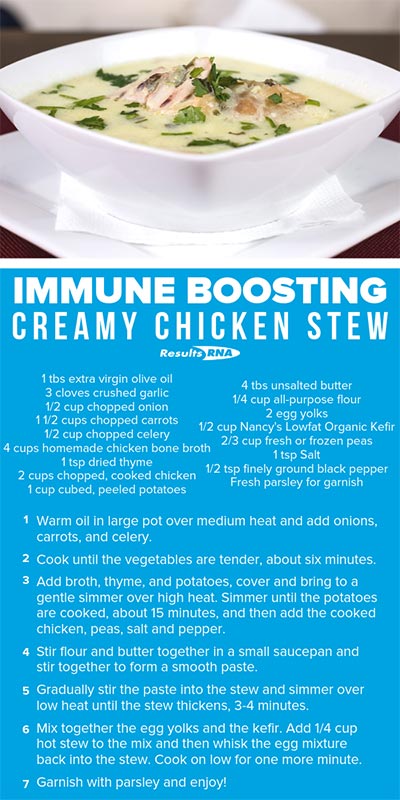The Beginner’s Guide to the Immune System –
Why Don’t I Feel Well?
 At times, most of us wonder, “Why don’t I feel well?” It is quite possible that your immune system may be weakened and struggling, making you feel unwell.
At times, most of us wonder, “Why don’t I feel well?” It is quite possible that your immune system may be weakened and struggling, making you feel unwell.
The immune system is a complex network of organs, tissues, and cells, that work in concert to defend the body against attacks by “foreign” invaders, also known as antigens. Anything capable of triggering an immune response is called an antigen, including live bacteria, parasites or fungi as well as environmental toxins, chemicals, and foreign particles (like pollen or dust).
The immune system’s goal is to seek out and destroy these foreign invaders through the formation of antibodies that are specific to each antigen.
How Does the Immune System Work?
To determine if a struggling immune system might be causing you to feel poorly, let’s explore immune system basics! The immune system is multifaceted with an intricate network of communication between cells throughout the body. It recognizes millions of different foreign invaders and produces specific antibodies or activated cells to counteract each of them. There are two types of immunity to be aware of:
Innate Immunity
Innate immunity is the immune system that we are born with. It includes skin and mucous membranes as well as special cells and proteins. It is our first line of defense (a physical barrier) that recognizes and neutralizes antigens and foreign invaders but develops no “memory” for the invading agent.
Adaptive Immunity
Adaptive immunity occurs when your body is presented with an antigen and then communicates information about it to other parts of the body. Specific antibodies are then produced by B lymphocytes (white blood cells) over the course of approximately 14 days. The body memorizes this response to recognize and attack more quickly if it encounters the antigen again.1
There are two types of adaptive immunity – active and passive.
Active Immunity is long-lasting (sometimes lifelong) and occurs when we develop antibodies after being exposed to an antigen through an infection (like chicken pox) or an immunization (i.e. a flu shot).
Passive Immunity is transferred from mother to child through the placenta before birth, and through breast milk after birth. Blood products that contain antibodies, such as immune globulin, can also confer passive immunity. Passive immunity is immediate, but generally only lasts a few months.2
Even though these concepts represent “the basic elements” of the immune system, it is a very intricate system that is challenging to simplify.
In an excerpt from his book, An Elegant Defense: The Extraordinary New Science of the Immune System: A Tale in Four Lives, Matt Richtel, New York Times Pulitzer Prize-winning author encourages us to think of our immune system as a vigilant bodyguard.3 “This vigilance is constant and largely invisible to us, with the immune system a literal bodyguard that defines health in the broadest possible terms.”
Seven Signs That Your Immune System May Be Weak and Why
Sometimes we know we aren’t feeling our best but may not understand why. If you are experiencing any of the following symptoms, you may be suffering from a weakened immune system.
 Tired all the Time
Tired all the Time
If you are getting 7-8 hours of sleep nightly, but still feel exhausted this may be a sign of a weakened immune system. Healthy immune function requires significant energy to work efficiently and fight off invading agents. If your immune system is weakened, it requires even more energy to accomplish this task and can leave you feeling fatigued and lethargic.4
- Frequent Infections
Frequent infections over a one-year period, infections that take a long time to heal, or needing more than two courses of antibiotics annually, may be signs of a weakened immune system. Your immune system might be struggling to produce antibodies to attack and destroy invading agents. You may even have a primary immune deficiency disease and should be evaluated by a medical practitioner.5
- High and Constant Stress Level
In humans, stressful events are associated with changes in the immune system. As we age, we become less capable of mounting an appropriate immune response during times of stress. Growing older, coupled with chronic stress, accelerates immunological aging, which can cause the immune system to become less resilient and weakened over time.6
- Frequent Seasonal Immune Challenges
Contracting two-three of these immune challenges each year is perfectly normal for adults, and it can take 3-5 days for our immune system’s response to diminish the troublesome symptoms. However, if you seem to be constantly dealing with this issue, and it doesn’t don’t seem to resolve within 7-10 days, it may be a sign of a struggling immune system.7
- Gastrointestinal Issues
It is a well-established fact that 70-80 percent of your immune system is located in your digestive tract. Beneficial bacteria and microorganisms defend your gut and ensure optimal immune function throughout the body. If you are experiencing diarrhea, constipation, bloating, gas, or intestinal pain, it may be sign that you have insufficient levels and types of beneficial microbes in your gut. This is known as intestinal dysbiosis and can put you at risk for chronic inflammation, altered bowel habits, intestinal infections, an impaired immune response, and even autoimmune disorders.8
- Wounds are Slow to Heal
Our skin and mucous membranes act as physical barriers (our innate immune system) to invading microbes and generally offer a level of protection against invading microbes. However, if your immune system is weakened or sluggish, the localized response by immune cells at wound sights may be compromised, your skin may have a hard time regenerating and wounds may get infected or take longer to heal.9
- Overweight or Obese
According to the Centers for Disease Control and Prevention data, the 2019 obesity rate in the United States was an astonishing 40 percent! The accumulation of more fat (adipose) tissue usually translates to an increase in cytokine production by the cells regulating immunity and inflammation. Increased cytokine production may result in low-grade, chronic inflammation, which over time, may weaken and impair the immune system.10
Detoxification Allows Our Immune System to Flourish
Toxins are everywhere …in the air we breathe, in our water supply, in the foods we eat, the medications we take, and from a variety of other sources in our environment. Toxic heavy metals, chemicals and disease-causing microorganisms accumulate in our bodies and can cause cellular damage, increase oxidative stress and ultimately weaken our immune system.
In a nutshell, detoxification involves the removal or “cleansing” of toxins and impurities from the body. The liver is our body’s major detoxification organ and is responsible for breaking down accumulated toxins. Glutathione is a powerful antioxidant made primarily in the liver from three amino acids: cysteine, glutamate, and glycine.11 It plays a vital role in both detoxification and immune function. Its function in the immune system is two-fold: it protects host immune cells through its antioxidant mechanisms and it supports the optimal functioning of lymphocytes and other cells of the immune system.12 Unfortunately, glutathione levels decline as we age and may make us more susceptible to oxidative stress, a weakened immune system and disease.13
Periodic detoxification and maintenance of adequate glutathione levels in our cells serve to lighten our body’s toxic burden and allow our immune system to flourish like it is supposed to. Detoxification can take many forms, ranging from periodic detoxifying cleanses or specialized diets, to the use of nutritional supplements or chelating agents to remove heavy metals, some of the most detrimental toxins we are exposed to.
Strengthen Your Immune System Naturally
Because exposure to invading agents and toxins is nearly impossible to avoid in our daily lives, it is important to find ways to protect ourselves. As such, it stands to reason that a healthy and robust immune system can play an important role in warding off the more serious insults to our body. Let’s explore some ways to bolster our immune system that are easy for most of us to employ.
Healthy Diet

Eating a balanced and nutritious diet high in fruits and vegetables has been shown to promote optimal immune function and support a healthy inflammatory response. Fruits and vegetables contain many important immune-supportive antioxidants, nutrients, flavonoids, and vitamins. Avoiding sugar and high-fat items, artificial food additives and preservatives may support a healthy microbiome and promote optimal immune function.14
Adequate Sleep
Chronic sleep loss results in changes in cytokine production as they are both produced and released during sleep. Cytokines are signaling molecules involved in both inflammatory and immune responses. When you are not getting adequate sleep, you may be unknowingly triggering immune suppression and inhibiting formation of immunological memory.15
Minimize Stress
It is a well-established fact that increased or prolonged stress has a negative effect on inflammation and immune system function. Mindful meditation, massage, yoga, and tai chi are practices that may help to minimize stress, inflammation, and avoid immune suppression.16
Exercise Regularly
Getting regular exercise can strengthen the immune system and help your body ward off viral infections. Try to get 30 minutes of some form of exercise at least three days a week. For those with limited mobility, short walks or chair-based exercises can improve blood circulation and have an anti-inflammatory and immune-strengthening effect on the body.17
Nutritional Supplements
If eating a healthy diet and avoiding stress are challenging, there are a number of nutritional supplements that can aid in supporting optimal immune function. Vitamin C, Vitamin D, zinc, glutathione, probiotics and other microbiome-balancing formulas, plant extracts such as elderberry, olive leaf extract, and garlic have all been shown to promote healthy immune function. Various mushroom extracts have also been shown to provide powerful immune support.
So, what’s the key to feeling well?
 If you find yourself asking “Why Don’t I Feel Well?”, it’s time to evaluate how well your immune system is working – you might be due for a “tune-up!” Understanding immune system basics and utilizing some of the strategies discussed can help optimize immune function. Periodic detoxification, developing healthy lifestyle changes to improve, sleep, stress, diet, and exercise and supplementing your body with key nutrients, vitamins, and botanicals can all help fine-tune your immune system so it flourishes as intended.
If you find yourself asking “Why Don’t I Feel Well?”, it’s time to evaluate how well your immune system is working – you might be due for a “tune-up!” Understanding immune system basics and utilizing some of the strategies discussed can help optimize immune function. Periodic detoxification, developing healthy lifestyle changes to improve, sleep, stress, diet, and exercise and supplementing your body with key nutrients, vitamins, and botanicals can all help fine-tune your immune system so it flourishes as intended.
References:
- InformedHealth.org [Internet]. Cologne, Germany: Institute for Quality and Efficiency in Health Care (IQWiG); 2006-. The innate and adaptive immune systems. 2010 Dec 7 https://www.ncbi.nlm.nih.gov/books/NBK279396/
- https://www.cdc.gov/vaccines/vac-gen/immunity-types.htm
- https://www.amazon.com/Elegant-Defense-Extraordinary-Science-Immune/dp/0062698494/ref=sr_1_1?dchild=1&keywords=An+Elegant+Defense%3A+The+Extraordinary+New+Science+of+the+Immune+System%3A+A+Tale+in+Four+Lives&qid=1593102401&sr=8-1
- https://www.pennmedicine.org/updates/blogs/health-and-wellness/2020/march/weakened-immune-system
- https://www.aaaai.org/conditions-and-treatments/library/immune-deficiencies-library/recurrent-infections-immunodeficiencies
- Segerstrom SC, Miller GE. Psychological stress and the human immune system: a meta-analytic study of 30 years of inquiry. Psychol Bull. 2004;130(4):601-630.
- https://www.cdc.gov/features/rhinoviruses/index.html
- Wu HJ, Wu E. The role of gut microbiota in immune homeostasis and autoimmunity. Gut Microbes. 2012;3(1):4-14. doi:10.4161/gmic.19320
- Guo S, Dipietro LA. Factors affecting wound healing. J Dent Res. 2010;89(3):219-229. doi:10.1177/0022034509359125
- Ghigliotti G, Barisione C, Garibaldi S, et al. NCBI, Adipose Tissue Immune Response: Novel Triggers and Consequences for Chronic Inflammatory Conditions Inflammation, Vol. 37, No. 4, August 2014
- Ookhtens M, Kaplowitz N. Role of the liver in interorgan homeostasis of glutathione and cysteine. Sem Liv Dis. 1998;18:313–329.
- Droge, W.; Breitkreutz, R. Glutathione and immune function. Proc. Nutr. Soc. 2000, 59, 595–600.
- Liu H, Wang H, Shenvi S, Hagen TM, Liu RM. Glutathione metabolism during aging and in Alzheimer disease. Ann N Y Acad Sci 2004;1019:346–349.
- Zhu F, Du B, Xu B. Anti-inflammatory effects of phytochemicals from fruits, vegetables, and food legumes: A review. Crit Rev Food Sci Nutr. 2018;58(8):1260-1270.
- Besedovsky L, Lange T, Born J. Sleep and immune function. Pflugers Arch. 2012;463(1):121-137.
- Dhabhar FS. Effects of stress on immune function: the good, the bad, and the beautiful. Immunol Res. 2014;58(2-3):193-210.
- Campbell JP, Turner JE. Debunking the Myth of Exercise-Induced Immune Suppression: Redefining the Impact of Exercise on Immunological Health Across the Lifespan. Front Immunol. 2018;9:648.




